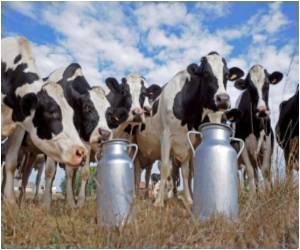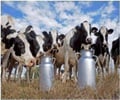A new study has provided insight into what makes cow milk allergenic to children and in adults.

Milk allergy is frequently confused with lactose intolerance. But while people with lactose intolerance do not digest lactose properly as they lack an enzyme known as lactase, in the case of the potentially much more dangerous cow milk allergy, the body's immune system attacks milk proteins with its own IgE antibodies.
According to statistics, about 2-3 percent of children in Europe suffer from a genuine milk allergy. Less adults are diagnosed with the disease. The formation of so-called Th2 lymphocytes is initiated in these patients. Th2 lymphocytes contribute in great measure to the production of IgE antibodies to milk proteins. Hence, people develop an allergic reaction to milk.
One of the most important milk allergens, beta-lactoglobulin, belongs to the protein family of lipocalins, that possess molecular pockets which are able to accommodate iron complexes. Iron is bound to the protein by so-called siderophores.
The study shows that an 'empty' milk protein, one without iron and siderophores, helps to activate Th2 lymphocytes. As a consequence, the production of IgE antibodies against the milk protein is stimulated. The patient gets sensitized and may develop an allergic reaction to milk.
The study is published in the journal PLOS ONE.
Advertisement














